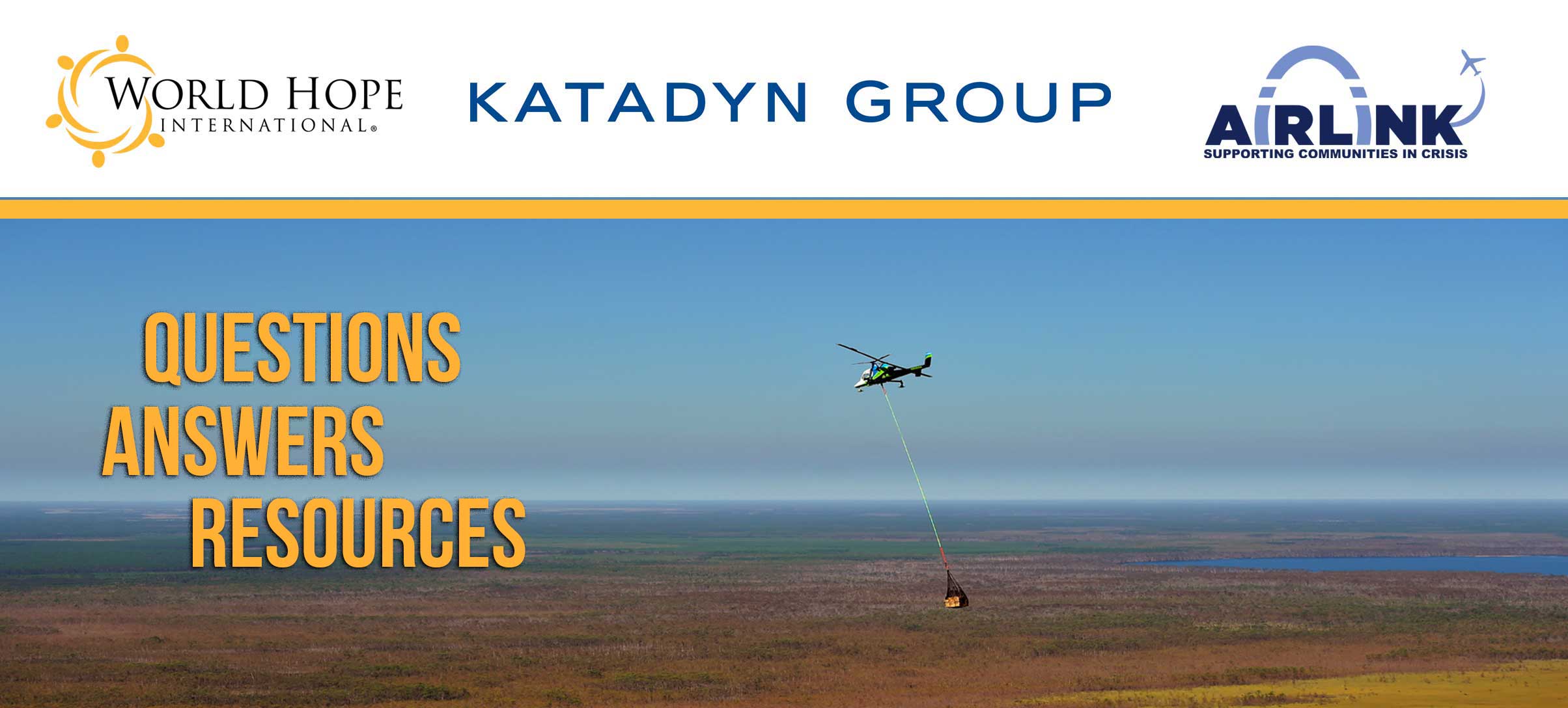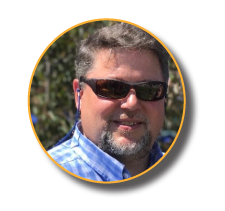
#EarthAndEmergencies: Webinar Questions, Answers, & Resources
On Tuesday, April 23rd, World Hope International (WHI) hosted a webinar on #EarthAndEmergencies together with our partners, Airlink and Katadyn Group, in celebration of Earth Day. Our panelist line-up featured WHI’s former President & CEO, John Lyon; Katadyn Group’s Business Development Manager, John Wright; and Airlink’s Humanitarian Programs Director, Liz Bloomfield.
Responding to disasters can create new challenges for the devastated community if it is not done right – including increasing plastic pollution and damage to the environment. WHI Canada’s Executive Director, Tanya Nace, moderated the webinar discussion and pointed out at one point that “there is a tension between getting emergency response there quickly and getting it done right.”
“It’s the long-term nature of providing a reliable water source that’s so critical here and to do that, you have to be willing to invest in building the capacity of that community. Showing up with a lot of bottled water not only brings all kinds of other challenges, but it’s a very short-term solution.”
The webinar conversation covered everything from what local communities and organizations can do to prepare for and respond to disasters; to corporate social responsibility and the role of the private-sector in response and recovery; to where the Sustainable Development Goals come into play; to the environmental benefits of using alternative clean water solutions like aquifers or solar-powered desalination systems and filters, and more.
Audience members of the live webinar had the opportunity to ask questions on Twitter using #EarthAndEmergencies and our panelists took the time to respond to a question that came in as the webinar drew to a close. They have also provided some of the additional resources that were mentioned during the conversation. The question they’ve responded to here is,
“Can you please expand on the importance of sustainability in preventing infectious diseases, and preventing outbreaks becoming epidemic?”

John Wright: One way to look at the question of sustainability and infectious disease prevention is to look at filter life. Some filters last for 1,000 Lt’s such as hollo fiber filters. Others, such as ceramics filters can last for 150,000 Lt’s.
If a filter reaches its useful lifetime limit and is discarded before the desired health effect is achieved, we would need to start over with a longer lived filtration solution to achieve the desired health effect. Choosing the wrong filter creates more waste and allows the infection room to grow.

Liz Bloomfield: When responding to any disaster, it is important to take a long-term view and implement sustainable initiatives that will enable affected communities to transition effectively into recovery and beyond. When considering how to prevent the spread of infectious diseases, this could mean investing in the expertise and equipment necessary to establish a sustainable and reliable water supply, and building the capacity of the local community to operate and maintain equipment on an ongoing basis. Other initiatives could include vaccination campaigns where appropriate, or delivering information campaigns that educate the community around risks associated with the spread of disease, and how these risks can be mitigated.

John Lyon: An ounce of prevention is worth more than a pound of cure. That moto holds true for infection prevention and that is why we supported Sierra Leone with a “build back better” model through the provision of improved water and sanitation facilities after the ebola outbreak. This infrastructure needs to be maintained in the long run to help prevent future outbreaks.
Additional Resources
Aquifer systems are designed and built to be operated with minimum training needed, but live, hands-on training events are routine where teams own & deploy multiple Aquifer systems. Because disasters tend to happen on their own schedule, however, Katadyn does work to provide training documents, videos, and consults that can happen via Web or Phone, too… View a basic Katadyn Aquifer training document
WHI also offers occasional “Fresh Water Trainings.” Interested in participating in or organizing one later this year…? Contact us
Regional Response Framework & Aviation Ambassadors Program
Airlink has developed a Regional Response Framework that is specifically designed to inform a timely response to humanitarian crises and provide relief to communities in crisis… Explore the Framework
Members of the aviation sector can also opt to join Airlink’s Ambassador program, which joins individuals from across the aviation sector who believe in the importance of rapidly responding to disasters worldwide and are committed to doing their part… Learn more
Listen To Our Webinar
WHI has responded to and prepared for many emergencies around the world, from building disaster resiliency in communities to providing access to clean water during emergencies or long-term health solutions. You can learn about our response to the Ebola crisis in Sierra Leone, view emergencies we have responded to, or read about our water and sanitation work.
